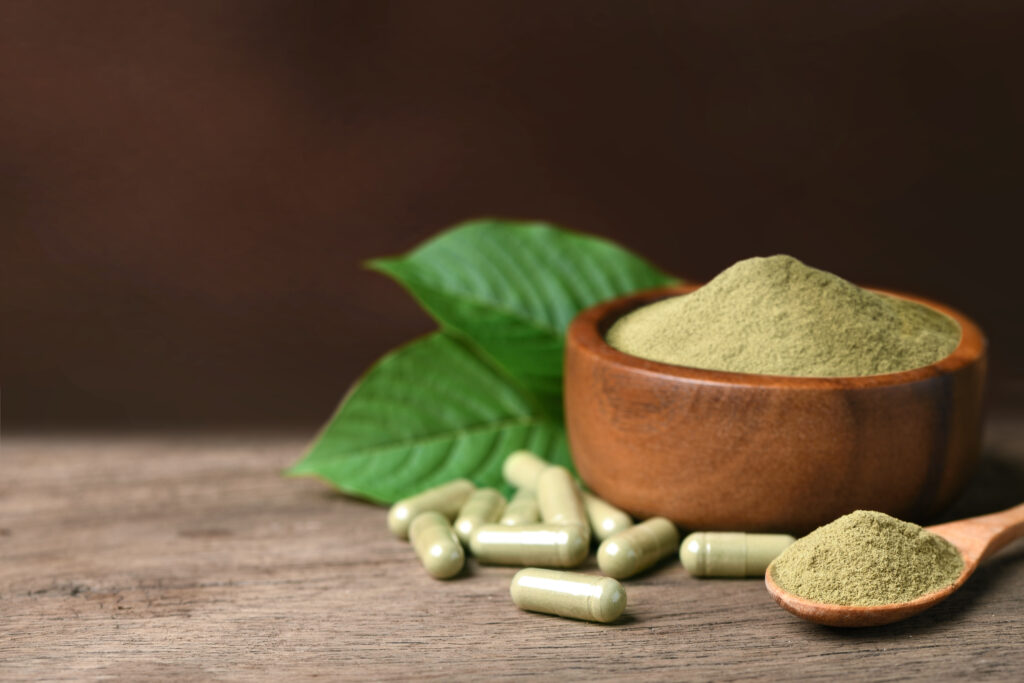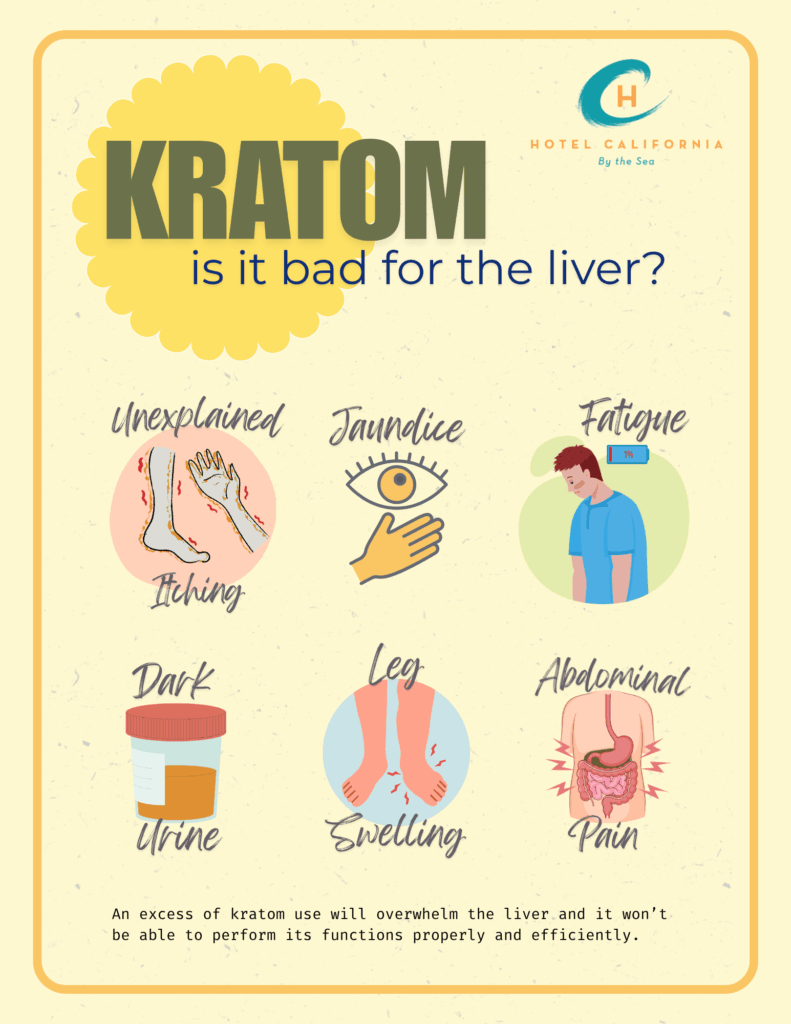Is Kratom bad for the Liver?
Over 5 million people in the US are now using Kratom. Its popularity continues to grow despite new research findings of kratom effects on the liver. Is kratom bad for the liver? A new study from the US Drug Induced Liver Injury Network found that many cases of liver disease or damage were associated with products that contained kratom.

Kratom is processed in the liver. The process is similar to that of how the organ handles other substances such as prescription medications or alcohol. Repeated and prolonged use of kratom can overwhelm the liver function and cause damage. In some cases, kratom has been banned in certain countries due to its ability to cause damage to the liver.
Kratom use has increased due to the wide availability of products online and in stores. It is still federally unregulated and therefore easily accessible. This has contributed to its popularity as a substance on top of the fact that it has the potential to produce opioid like effects. Because it is not a regulated substance, there isn’t enough research to give definite answers on the risks of kratom. However, researchers are now finding more and more dangers associated with liver damage due to the substance.
What is Kratom? What are its effects?
Kratom is a plant-based substance whose extracts have the potential to produce opioid-like effects. It is often used for pain relief, anxiety management and for recreational purposes. Many believe that because it is a naturally derived plant-based substance, it is safe. Unfortunately, that is not always the case.
It is from a plant found native to Southeast Asia. It is popular among laborers in this region for both pain relief and stimulant use. But the potential for organ damage and the development of dependence and addiction has led to its banning in countries such as Malaysia and Thailand.
Kratom contains two main active compounds called mitragynine and 7-OH. These compounds interact with the brain’s opioid receptors and can produce opioid-like effects like mild sedation and mild euphoria. They can also provide temporary pain relief.
It is typically sold as a green powder or tablets and can also be labeled as jewelry cleaner and not intended for human consumption. However, with little to no regulations, kratom has been marketed in many ways that appeal to users. The popularity of the substance continues to rise as more people are looking for “natural “ ways to relieve pain. However, like other substances, kratom carries its own risks, especially when it comes to liver health.

Is Kratom bad for the Liver?
A 2019 report by the American Association for the Study of Liver Disease found that kratom has the potential to be abused, which can then lead to an impact on liver health. The latest developments also found that it was linked to severe liver injury. With prolonged kratom use even at normal doses, there is a high risk for liver injury, including toxicity, causing a high elevation of liver enzymes that lead to liver failure.
The liver is one of the major organs in your body. And like major organs, it has a big job to do. It is basically the cleaner of your body. The liver is responsible for cleaning out your blood.
During digestion, the blood absorbs nutrients and other compounds that pass through the liver. The liver processes the blood, breaks down the harmful substances and then creates nutrients from the building blocks of the food you ingest. When it comes to drugs, the liver metabolizes them into a non-toxic form that can easily be removed from the body.
The liver is also responsible for producing bile. Bile helps carry waste from the liver and assists with breaking down fats in your diet.
The liver produces protein for your blood plasma.
The liver helps to convert sugar into a storable form of sugar for the body.
The liver helps to fight off infections and removes bacteria from the blood.
The liver helps regulate levels of amino acids in the blood.
An excess of kratom use will overwhelm the liver and it won’t be able to perform its functions properly and efficiently.
Check Your Insurance Coverage for FREE
Find out if your insurance covers addiction treatment in minutes. We accept most insurance!
Kratom Effects on the Liver
- Fatigue and weakness
- Abdominal pain or discomfort on the upper right side of the abdomen
- Dark colored urine
- Jaundice – yellowing of the skin and whites of the eyes, which are classic signs of liver damage
- Unexplained itching of the skin
- Pale stool color
- Nausea and vomiting
- Swelling of legs, feet or ankles due to accumulating fluids
Health risks from long-term Kratom use
- Tolerance, dependence and addiction leading to escalated kratom use
- Liver damage – liver toxicity in which symptoms can appear a few weeks after regular use
- Elevated liver enzymes – can be a sign of liver stress or damage and indicate inflammation or injury
- Risk of liver disease – heavy and long-term use of kratom is linked to increased risk of liver disease, especially in combination with other substances like alcohol and prescription medications
- High blood pressure
- Imbalance of hormones
- Mood swings, depression and anxiety
New studies warn against the use of Kratom due to possible Liver damage
According to the National Poison Data System, there were 1800 cases of kratom poisoning from 2011 to 2017. Two-thirds of those reports occurred between 2016 and 2017. In 2020, a new study found 11 cases of kratom-related liver damage that resulted in the development of jaundice in some patients.
Since the rise in popularity of recreational kratom use, the CDC warns of the opioid like effects that can lead to dependence and abuse. There is still not enough research and evidence to prove any health benefits from taking kratom. It is not medically recommended for use in any type of treatment or medical case.
The two popular kratom compounds can provide temporary pain relief, but they also burden the liver, which is responsible for metabolizing substances and detoxifying the body. Acute liver failure is most likely to occur when ingesting large amounts of kratom due to the pressure on the organ to quickly and efficiently process the substance.
Research into kratom caused liver damage found that symptoms will usually begin about one to eight weeks after regular kratom use. Using kratom occasionally isn’t likely to cause liver problems. But with regular use that increases over time, gradual liver damage can occur. In most cases, liver damage from kratom can be reversible when substance use has stopped.
Reach out to Hotel California by the Sea
We specialize in treating addiction and other co-occurring disorders, such as PTSD. Our Admissions specialists are available to walk you through the best options for treating your addiction.
Treatment for Kratom Abuse and Substance Addiction
Kratom is an unregulated substance that has now been shown to cause damage to the liver. Though not regulated and there is still very limited research on the substance, scientists and researchers believe it can be just as dangerous as any other mind-altering substance. Professional behavioral health programs such as Hotel California by the Sea provide treatment for substance use disorder, including addiction to kratom.
We offer treatment at all levels of care including detox, residential, PHP and IOP. We utilized the evidence-based treatment methods including CBT, DBT and family therapy. Hotel California by the Sea is dedicated to helping clients reach their goals of sobriety and overcome their addiction.
References:
https://healthmatch.io/liver-disease/kratom-liver-damage
https://pmc.ncbi.nlm.nih.gov/articles/PMC8113016
https://www.healthline.com/health-news/kratom-safety-study-liver-health
https://dilworthcenter.org/effects-of-kratom-on-the-liver-understanding-the-risks/
https://www.promises.com/addiction-blog/is-liver-damage-from-kratom-reversible/
